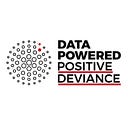The DPPD Year in Review
By Andreas Pawelke and Basma Albanna
As we conclude a year of DPPD exploration and innovation, here’s a quick overview of what’s been happening in the world of DPPD this year.
Climate Mitigation & Adaptation in Ghana and India

Following the DPPD Masterclass on climate change mitigation and adaptation, we’ve seen inspiring progress from two GIZ teams, one in Ghana and one in India.
The team in Ghana is working on addressing the challenge of deforestation and loss of forest cover. Utilizing the DPPD method, the team aims to identify communities successfully preserving their tree cover, likely through agroforestry practices, and use these insights to develop scalable climate-resilient strategies that can be integrated into wider regional plans.
In India, the team focuses on small, community-managed wetlands trying to identify communities effectively managing and restoring wetlands. The goal is to understand and disseminate local practices and behaviors contributing to wetland health and resilience across similar regions and wetlands in India.
We ran the Masterclass at the end of last year together with the GIZ Data Lab, the GIZ Sector Network Rural Development Asia and the Pacific, the GIZ Sector Network Rural Development Africa, and Prof. Jadu Dash of the University of Southampton.
Outperforming Rangeland Communities in Somalia

The Somalia rangeland management project is the most advanced DPPD work so far having completed its initial phase in 2020 which encompassed the first three stages of the DPPD method, identifying pastoral communities in the West Golis region of Somaliland that successfully preserved their rangelands.
In 2022, the project’s second phase focused on stages 4 and 5 of the DPPD method, aiming to design and implement interventions that would disseminate the successful practices of these communities to others facing challenges in maintaining rangeland health.
We will soon release a project report detailing the findings, reflecting on the results from a workshop that took place in Nairobi in September focused on sharing learnings and developing scaling strategies, as well as additional insights garnered throughout the project.
Climate Adaptation in India’s Wheat Belt

The changing climate poses a threat to wheat production in India, and early-sown wheat varieties (ESW), combined with complementary practices such as zero tillage, offer potential solutions.
This project aimed to investigate the impacts and determinants of adopting ESW varieties in India’s wheat belt region using the DPPD method. Early sowing districts were identified using remote sensing data in Punjab and Haryana. Following that, a survey of 1206 households was conducted to identify positively-deviant households that adopted ESW varieties.
After more than two years of collaboration between the GIZ Fund International Agricultural Research, GIZ data services center, Michigan University, and Göttingen University, this project is coming to an end where the results of the analysis are now prepared for submission to an academic journal.
Website Launch: A Gateway to all Things DPPD

In July, we launched our official website, a hub for all things DPPD. It’s a space where practitioners, researchers, and anyone interested in the use of digital data to identify and scale outperformers can find resources, read about our projects, and connect with us.
Visit the DPPD website, sign up for upcoming trainings or follow us on Linkedin for updates.
Devex: Food Security & Positive Deviance

Our work on food security in Niger, exploring how positive deviance methods can be harnessed for impactful solutions, was featured in a Devex blog post with the piece underscoring the importance of local, unconventional solutions in addressing global challenges.
Financial Management in North Macedonia

The UNDP Accelerator Lab team in North Macedonia embarked on a project focusing on citizen-centered financial management at the local level. Using the DPPD method, the study sought to identify municipalities in North Macedonia that excel in citizen-centered financial management despite common issues like poor tax collection and debt. Insights from these positive deviants will be used to create a roadmap for improving financial management practices among other municipalities.
Read the report on the UNDP North Macedonia website.
Looking Forward
As we close out the year, we want to thank all our partners and collaborators! If you want to learn more about DPPD and engage with us visit our website or get in touch with us. Let’s continue harnessing data to find and scale community-owned solutions.
